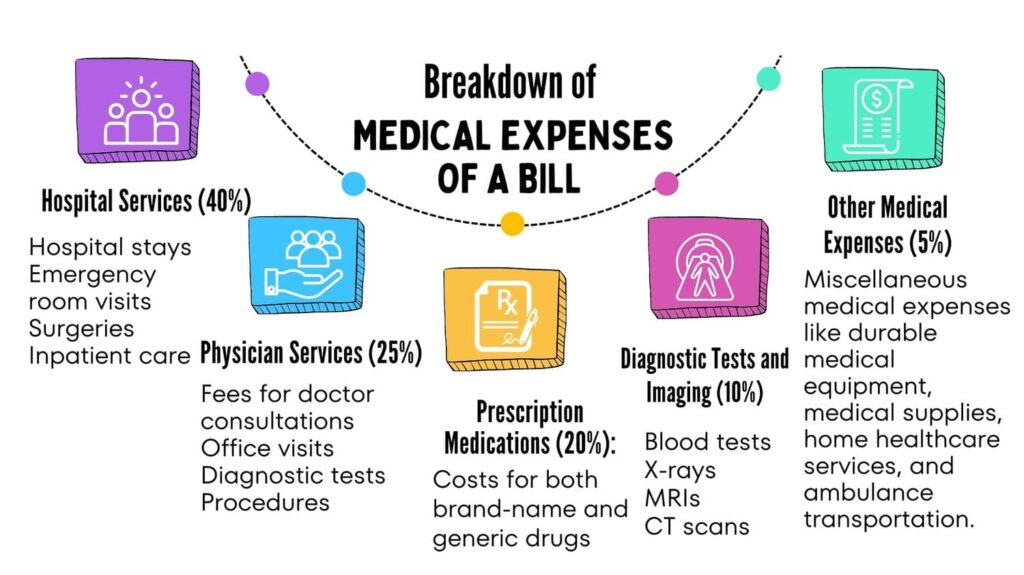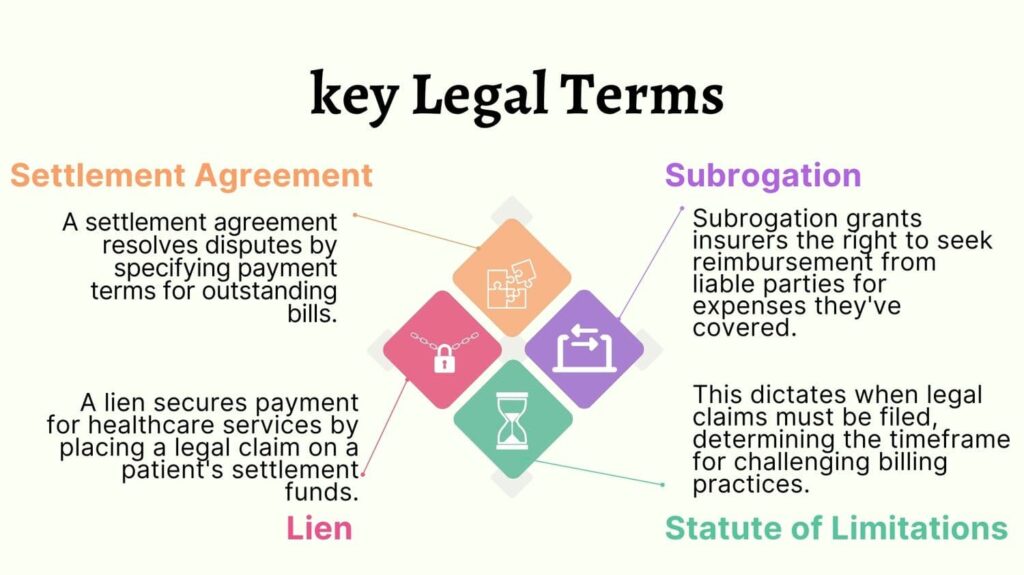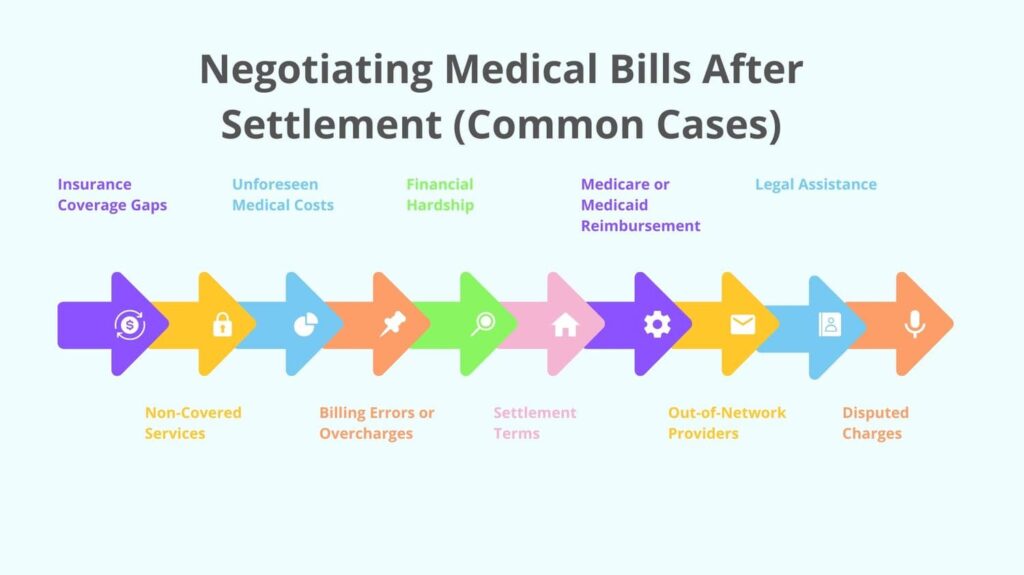Healthcare billing is a huge department. Many billing processes are being conducted on a daily basis under massive health areas. But in some specific cases, patients expect to reduce medical bills. These cases may vary from person to person, but when we talk about injuries or any legal issue with healthcare providers, you have the authority to negotiate. This process is called negotiating medical bills after settlement.
When a patient experiences a personal injury, is a victim of malpractice, or runs into a legal matter, they reach a settlement after communicating with healthcare providers and insurance payers.
After the settlement, they still have the chance to negotiate their bill amounts. If the patient’s statement is true here, there can be a considerable amount of deduction from their bill, making bill payments affordable for them.
So what is the process of negotiation once settlement is achieved? Let’s dive into the negotiation process and the possibilities that can come in your favor.
Read till the end to protect yourselves and your family from unjustified expensive medical bills.
3 Types Of Settlement Cases
The process of negotiating medical bills after settlement works only when you find yourself in certain cases.
We have mentioned these cases before, but here we will explore in detail the actual scenarios where you can undergo settlement. These are the following common healthcare situations:
Personal Injury Settlement
Injury cases are those where a person receives physical damage due to the negligence of another party. A lot of incidents come under this case, including the most common accident scenarios.
Medical Malpractice
Malpractice refers to the unnecessary medical treatment given to the patient which results in additional cost. It may also include inaccurate healthcare services due to the fault of the staff.
Malpractice, unfortunately, has become very common these days. In fact, as of the latest stats of 2021, an average of 20,000 real malpractice cases have been reported in a year in the U.S.
Legal Matters
Legal healthcare cases include billing and coding errors resulting in unjustified charges on the patient.
When they get to know the errors, they hire an attorney or medical billing lawyer who communicates with the healthcare providers and settles. After which you can reduce your bill, eliminating all the inaccurate costs.
A-Z Process Of Negotiating Medical Bills After Settlement

When you find yourself in any of the above-mentioned cases, it is essential to move towards negotiation. This process may save some of your medical expenses, protecting your financial resources.
So here is the accurate process of negotiating medical bills after settlement that you should follow.
Negotiation Ground
The term negotiation means to have a detailed discussion between multiple parties to come to a settlement.
In terms of healthcare, negotiation is the communication of the patient with healthcare providers as well as insurance payers, which results in all parties agreeing on some terms.
Review Your Bills
Now take all the medical bills at hand and carefully read them, including Explanation of Benefit (EOB) and itemized bill. All you have to do is make sure the charges are correct and the bill is error-free.
Following are some common billing errors to look for:
| Billing Error | Description |
| Duplicate Charges | Being charged multiple times for the same service or procedure |
| Incorrect Patient Information | Errors in patient details such as name, insurance ID, or treatment dates |
| Unbundling | Separating services that should be billed as a package, leading to higher costs |
| Upcoding | Charging for a more expensive service than what was actually provided |
| Services Not Provided | Billing for services or procedures that were not actually performed |
| Incorrect Quantity | Charging for more units of a service or medication than were actually provided |
In case of malpractice, accident scene, or legal pursuit, find out the actual guilty, be it any person or healthcare staff. Also, read the terms of all cases. This will help you find out if any party is responsible for paying your bills.
Understand Your Insurance Coverage
Once you read your bills, now look at the insurance coverage you have got. Find out what services have been covered and which ones you owe. Also, review the insurance policies to take the right step early on.
Gather Relevant Documents
Ask for all the bill-related documents from the healthcare providers. Not only this, but have your bank account details, incident record, medical bills, and insurance documents ready as well.
Contact Insurance Company
Many times settlements involve paying through insurance coverages. So before negotiation, contact your or the guilty one’s insurance company and ask for the outstanding charges that you owe.
Need Help from a Lawyer?
Contact Your Provider
When you have made all the preparations, contact your healthcare provider. Show your interest in negotiating medical bills after settlement.
Communicate Properly
Now briefly describe your injury situation and restrictions that are making it difficult for you to pay the bills.
Offer them a suitable payment option that seems okay to them and less burdened to you. Explore the possibility of discounts on settlements and expensive medical bills.
Many hospitals and clinics have some payment plans already prepared for their patients. So if you ask them, they might offer you the best one according to your situation.
Seek Legal Advice
Many people here may get help from billing lawyers. They are professionals, who master negotiation skills. Their involvement adds a huge impact to the process and it increases the chances of ample bill reduction.
Document Agreement
Once all parties agree, create and keep soft copies of the agreement. Sign the documents properly and mention all terms to leave no room for interpretation.
Some Legal Considerations

When negotiating medical bills after settlement, you must keep in mind some factors to make the process effective and generate success out of it.
First of all, you must be aware of your rights in all situations. If you are a victim of any of the cases, know your rights. Study what steps you can take to cover your damage.
This will assist in informed negotiation, providing confidence in your statements.
Also, many times patients conduct negotiation by themselves.
They think that their process is going to work, but end up reducing the insignificant amount of the bill. Performing such a crucial communication with your techniques will only yield wrong outcomes.
So it is great to take advice from a billing attorney. They know what steps would be beneficial and which procedure will result in maximized impact.
Communication conducted by lawyers is the most successful. They always bring fruitful results. After reading this you would want to go towards these lawyers and that is what we advise you to do.
Last but not least, after the incident there is a certain time frame for settlement. Conduct negotiation within the deadline, provide all the documents on time, and don’t forget to sign the agreements. Showing a quick response is key here.
A Patient’s Guide To Settlement
As a patient or a victim of malpractice/legal billing issues/personal injury, knowing the process of negotiating medical bills after settlement can save you from further financial trouble.
We hope you don’t get into such a critical situation, but if you do, our guide will provide a clear way to move forward.
Here is a table that can provide example of how much patients can potentially save by negotiating their medical bills.
| Type of Bill | Original Amount | Negotiated Amount | Savings | Percentage Saved |
| Hospital Stay | $10,000 | $7,000 | $3,000 | 30% |
| Surgery | $15,000 | $10,000 | $5,000 | 33% |
| Diagnostic Tests | $2,500 | $1,800 | $700 | 28% |
| Physical Therapy | $1,200 | $900 | $300 | 25% |
| Prescription Medications | $600 | $400 | $200 | 33% |
Also, here are some quick don’ts of the process you must avoid at all costs:
- Avoid accepting settlement terms without knowing their implications
- Refrain from sharing unnecessary or sensitive medical information during negotiations
- Don’t breach terms outlined in the agreement to prevent legal consequences
- Ensure settlements align with existing insurance coverage to avoid future complications
- Don’t communicate with the opposing party without the guidance of legal counsel
With all this detailed information about negotiation and settlement, you are now prepared to handle the case. Just involve legal advice in all steps and see the success you achieve.

